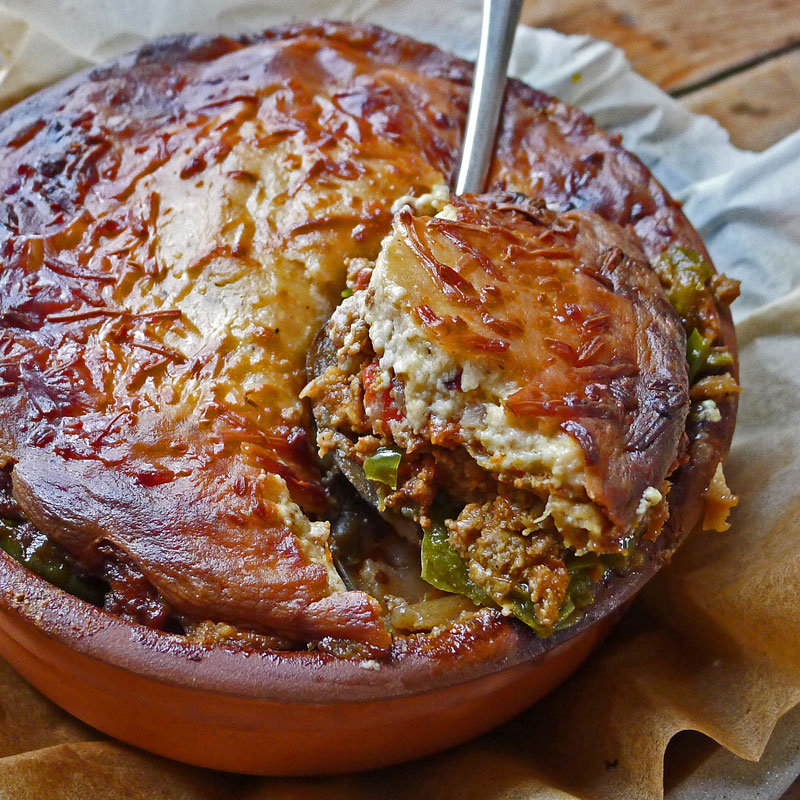Based on my mother’s recipe my version of the ubiquitous dish is more like a gratin as it was probably in the old days.

In the late ‘80ies, when I first started to research the origin of various popular Greek dishes, I was convinced that the current version of béchamel-topped mousaka was invented during the golden years of the Ottoman Empire, probably in the spectacular kitchens of Topkapi Palace, in Istanbul. Maybe a creative French-educated cook enriched the traditional Middle Eastern dish with the classic French sauce, I thought. But further investigation revealed that before the early twentieth century there was no mousaka as we know it today.
It is not surprising that the most popular Greek dishes throughout the world are not the chickpea or bean soup, the yellow split peas or the stewed mixed seasonal vegetables and greens that most Greeks ate regularly up until the late 1960ies. Those dishes only recently started to be part of the menu of upscale Greek restaurants, after the health benefits of the Mediterranean Diet were publicized. Mousaka, pasticcio, Greek salad, and maybe youvetsi (baked lamb with orzo in tomato sauce) are the dishes most non-Greeks consider to be the epitome of Greek cooking. Yet, most of those dishes have very little to do with traditional foods. They were developed, or drastically revised, by professional cooks and restaurant owners who were particularly interested to please the Athenian upper class of the early 20th century. The cosmopolitan Greeks of Smyrna (Izmir today) and Alexandria, in Egypt, were brought up eating mainly French-inspired foods in these prosperous cities of the Mediterranean, thus favored tamed, sweet and creamy combinations of traditional oriental favorites –like the eggplant casserole; dishes that also pleased the palates of European and American visitors. (more…)
Read More





